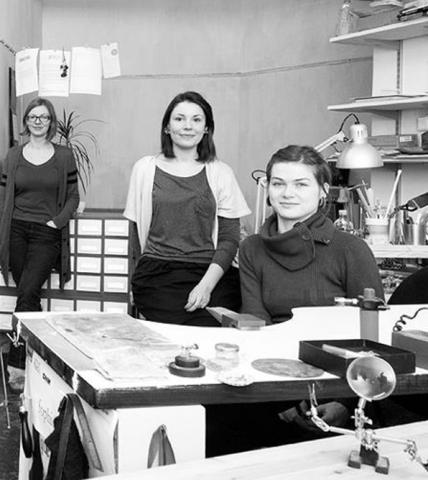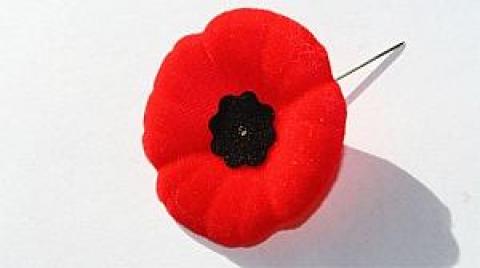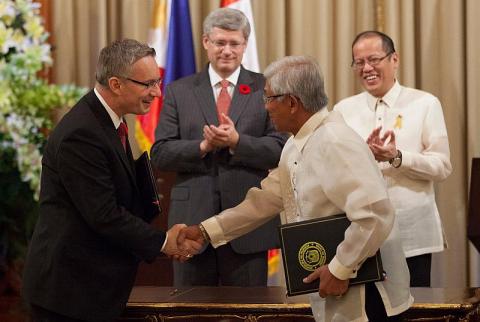Pearson scare triggers SARS drill
Officials in surgical masks take woman from plane
Richmond Hill couple say they were left uninformed
DEBRA BLACK
STAFF REPORTER
Health Canada quarantine officers, wearing surgical gowns and masks, met and boarded a Finnair plane at Pearson airport this week and removed a female passenger they suspected might have tuberculosis.
But passengers on the flight from Helsinki Tuesday night were not told what might be wrong with her. Two of them, who contacted the Star, said they were left frightened by the experience and worried for their child.
As it turned out, the woman, who spent the night at a local hospital and underwent rigorous tests, did not have tuberculosis and was cleared by medical officials, Health Canada said. Officials said as soon as they knew the woman did not have TB, the local public health unit began contacting all the passengers.
But at the airport Tuesday night, "They were rude and didn't tell us anything," said Monika Kolga, a Richmond Hill resident who was on the plane with her husband, Marcus, and their 17-month-old baby.
Kolga said when they tried to find out more, the officials were evasive, saying Health Canada would call them within the next 14 days if there was a problem. That wasn't good enough for the Kolgas, who were concerned for their child. Officials didn't give the passengers any information on what symptoms, if any, they should be watching for, Kolga said.
"I asked the Health Canada official who was in charge on the aircraft ... a number of times, what's going on?" added Marcus. "What does this women have? She said she couldn't tell us."
In the post-SARS world, the swift removal of a passenger by quarantine officers and the donning of masks and surgical gowns are all part of normal protocol, Health Canada officials said.
Until SARS, a passenger suspected of having an infectious disease would have been directed to a local health authority or the hospital, said Aggie Adamczyk, a media spokesperson for Health Canada.
Before last year's outbreaks of severe acute respiratory syndrome, no quarantine officers were based at Pearson International Airport, she said. Health Canada has since hired 30 additional quarantine officers to supplement the couple of officers formerly based in Ottawa. Now, quarantine officers are posted across the country, with at least four or five at Toronto's main airport, Adamczyk said.
If someone is suspected of having an infectious disease, the health agency errs on the side of caution, she said. That's why quarantine officers in masks were at the airport Tuesday night.
In fact, Health Canada officials are called in to investigate a medical situation on a plane at least once a week at Pearson — although officials could not say how many times quarantine officers have donned surgical masks and gowns to remove a passenger.
Under the Quarantine Act, Health Canada officials have the right to detain an individual suspected of having an infectious disease. A spokesperson for Health Canada said the quarantine officers at Pearson acted appropriately in this case. They aren't allowed to disclose information to the public because of the passenger's right to privacy, said Adamczyk.
But the Kolgas are wondering if it would have been better to inform the passengers about what was going on instead of frightening them. When they arrived in Toronto they saw two ambulances, a security car and other cars with flashing lights on the tarmac, Marcus said.
Once at the gate, a number of Health Canada officers, who were wearing surgical gowns, gloves and surgical masks, boarded the plane. They took off a woman in her early 60s, Marcus said. But they refused to tell the passengers what was happening or why she was being removed.
After passengers gave Health Canada officials their information, they were allowed to leave the plane but were not given any special instructions. As they cleared customs, where they were also asked for information, the Kolgas were surprised to find officers there were also wearing surgical masks.
"They were extremely evasive," said Marcus. "They suggested it wasn't SARS. We told a customs agent we were worried. He said they knew (what the problem was) but couldn't say anything.
"He said we could rule out SARS."
Health Canada was informed that a passenger on the Finnair flight might be suffering from tuberculosis, said Dr. Jean-Pierre Legault at Health Canada.
"We had a suspected case based on clinical findings of a physician in the country of origin," Legault said. "And our system got activated at that point. We got in touch with the pilot on the airplane and told him what precautions to take."
That included isolating the passenger, then having her taken from the plane and to a nearby hospital for tests.
Pearson scare triggers SARS drill Toronto Star. Juhtum Toronto Helsinki lennukis (4)
Kuumad uudised | 15 Jul 2004 | EWR
Viimased kommentaarid
Kommentaarid on kirjutatud EWR lugejate poolt. Nende sisu ei pruugi ühtida EWR toimetuse seisukohtadega.
Mis tähendab "miks seda haiget naist lubati lennule". Minu teada ei tehta enne lennukile minekut mingit tervisekontrolli, igaüks vôib minna. Ega tuberkoloosikahtlust välispidiselt aru ei saa. Kui lennuk juba ôhus oli, siis arst Soomest arvas, et asi vôib olla kahtlane ja igaks juhuks andis Kanada poolele teada.
Lõpuks helistas Health Canada mulle kell 13:30, täna.
Küsisin, miks seda haiget naist lubati lennule. Ta vastas, et pole nende probleem. Ta ütles, et kui oled lennul ja märkad, et keegi on haige, siis nad võivad teda eemaldada, aga et see pole kellegi asi, ainult teiste kaasreisijate.
Õudne kord!!!
Küsisin, miks seda haiget naist lubati lennule. Ta vastas, et pole nende probleem. Ta ütles, et kui oled lennul ja märkad, et keegi on haige, siis nad võivad teda eemaldada, aga et see pole kellegi asi, ainult teiste kaasreisijate.
Õudne kord!!!
Niimoodi varjati Eestis sotsialismi ajal.Kanada on minemas sama teed! Mida lollim rahvas ,seda parem valitseda.
Kuumad uudised
TRENDING























